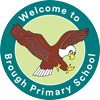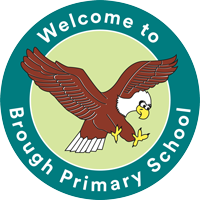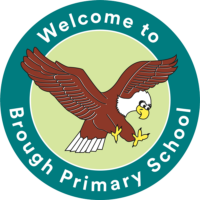Intent
Our Brough Primary School geography curriculum is designed to ensure that all children have every opportunity to learn place and locational knowledge along with developing the skills that will help them explore their own surroundings and community, as geography has the ability to give children a sense of the world around them at a local level as well as developing an understanding of their planet on a global scale.
They will be given the opportunity to develop their knowledge and skills through exploring places first hand as well as discussing and comparing their experiences with the diverse physical and human geography of the world.
At Brough Primary School we want all children to become aware of the importance of the environmental changes in our ever-changing world and how its impact affects them both now and, in the future, helping them consider their role and responsibilities developing their compassion for our Earth.
We will fulfil the requirements of the National Curriculum for geography whilst providing a broad and balanced curriculum which ensures the progressive development of skills and knowledge across many areas of the curriculum.
Aims
The national curriculum for geography aims to ensure that all pupils:
- develop contextual knowledge of the location of globally significant places – both terrestrial and marine – including their defining physical and human characteristics and how these provide a geographical context for understanding the actions of processes
- understand the processes that give rise to key physical and human geographical features of the world, how these are interdependent and how they bring about spatial variation and change over time
- are competent in the geographical skills needed to:
- collect, analyse and communicate with a range of data gathered through experiences of fieldwork that deepen their understanding of geographical processes
- interpret a range of sources of geographical information, including maps, diagrams, globes, aerial photographs and Geographical Information Systems (GIS)
- communicate geographical information in a variety of ways, including through maps, numerical and quantitative skills and writing at length.
Implementation
In order to achieve high standards within geography the curriculum is progressive from EYFS to Year 6 in geographical skills, including mapping skills through fieldwork, and human and physical geography as well as locational and place knowledge. It will also give children the chance to develop and apply their reading and writing skills. The long-term plan maps out the experiences the children will receive in each key stage. It is written by the subject leader in consultation with other members of the teaching staff. The subject leader provides medium-term plans for each unit of work ensuring that key skills, key words, required knowledge and objectives are covered. This supports teachers with the development of lesson planning. The structure and sequence of lessons helps to ensure coverage of the skills required to meet the aims of the National Curriculum and the content allows for a broader, deeper understanding of the four areas of geography identified in the curriculum plus allowing children the opportunity to work in different ways.
Each year group will build upon the key knowledge and skills taught previously, ensuring that children learn and remember. In KS1, children begin to use and make simple maps and recognise physical and human features to do with their immediate environment as well as their local area. This leads to children beginning to compare where they live to places outside of Europe and ask and answer geographical questions in Year 1/2. In KS2, mapping skills are developed using digital maps, more complex keys and symbols and children begin to focus on fieldwork skills beyond the local area. Through revisiting and consolidating skills, comparing our local area and country with others, our lesson plans and resources help children build on prior knowledge alongside introducing new skills and challenges.
All year groups will have planned locational knowledge sessions, that will reinforce place and locational knowledge skills and build upon prior knowledge.
Environmental issues will be an important part of each year group’s learning, be it being responsible for their school environment and discussing how to look after the resources and local community or fundraising for environmental issues and taking part in charity initiatives. KS2 will also be involved in looking at the wider, global impact of environmental issues, such as the destruction of rainforests.
Across both key stages, children have a range of opportunities to experience geography through practical tasks, local visits and residential trips in KS2. This provides inclusive and aspirational environments and learning experiences for all children.
Planned whole-school focus tasks, such as outdoor learning opportunities and fundraising for environmental causes help all children overcome barriers in their learning. Cross-curricular links with English and science also help children consolidate their learning and broaden their understanding.
They will have the opportunity to use the school’s geography hub to discuss their focus area of the world using our larger scale maps. They will have the opportunity to access a range of atlases, globes and topic books. All classes have access to a set of atlases, globes and maps that are available as a resource in topic lessons and as a reading choice.
Each geography unit will start with an initial check of what the children already know and understand and this will inform planning and give the opportunity for all children to be supported in the best way possible.
Impact
At Brough Primary School we want every child to leave us in Year 6 having had a wide range of geography skills and knowledge of their local and global world too.
Children will be able to see their own progress through reviewing their learning outcomes in lessons and by comparing how their knowledge and skills have improved from their initial assessment point with that of their end of topic knowledge.
The quality of the provision they received is measured through
● Discussing and taking feedback from the children – pupil voice.
● Moderation of books and staff meetings with an opportunity for dialogue between teachers and the subject leader as well as pupil voice discussions.
● Learning walks, to check coverage of topics through displays, resources and the vocabulary being used.
Our main aim is to give children the opportunities to reflect and discuss their understanding of their world and help them be able to develop their questioning skills and opinions while building regard for their planet.


